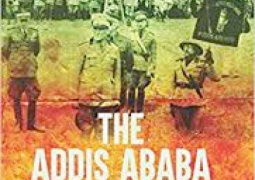The training workshop organized by the local IMF office to give journalists in The Gambia an understanding of economics is a commendable initiative. It is also long overdue.
The participants in the workshop received a very good handout entitled, “Back to Basics - Understanding Economics”, which “aims to explain basic concepts for the non-specialist”.
Topics covered by the booklet include: Inflation; Unemployment; Exchange Rate Regimes; and Remittances. These are all matters of great interest to the public; they are issues people confront daily, and which journalists do have to report on frequently.
Journalists report on a whole range of issues and events in The Gambia. Indeed, they report on everything or they are required to do so properly.
Yet there are fields which are obviously technical in nature, and have their own jargon, which are beyond the comprehension of your average journalist.
Thus such training sessions are useful in helping media practitioners to do their work effectively.
Of course, mastery of the English language apart, journalists are supposed to be widely-read and well-educated, and effective communicators.
However, organising such training fora will help journalists to do a good job of reporting financial and business news, economic trends and so on, which have become increasingly relevant to the life of Gambians today.
For example, take the VAT issue, which the Gambia Revenue Authority is struggling to make people (both businesspeople and consumers) understand or the jargon-laden monthly news release issued by the monetary committee of the Central Bank of The Gambia. There is also the annual Budget Speech of the minister of Finance and Economic Affairs.
The latter, for instance, is usually couched in language the journalist finds difficult to comprehend – and he is expected to do a news report on the document.
Invariably, the tendency is to just pass on the jargon to the public – meaning journalists are always breaking the rule that you must not pass on to the reader what you do not understand!
Thus, we want to suggest that our national institutions take a cue from this activity of the local IMF office in what they could do in order to get their message across to the public.
They could also learn from the communication strategy of GIABA (the Inter-governmentalAction Group Against Money Laundering in West Africa), which has been engaged in such training exercises for the Network of Journalists Against Money Laundering and Terrorism Financing.
With so much talk of pursuing national development, training journalists to grasp complex issues will help journalists to play their watch-dog role in the society, including performing well their duty to adequately inform, educate and enable the people to ensure the accountability of government and state institutions.
A petty reason perhaps why novelists more and more try to keep a distance from journalists is that novelists are trying to write the truth and journalists are trying to write fiction.
Graham Greene





